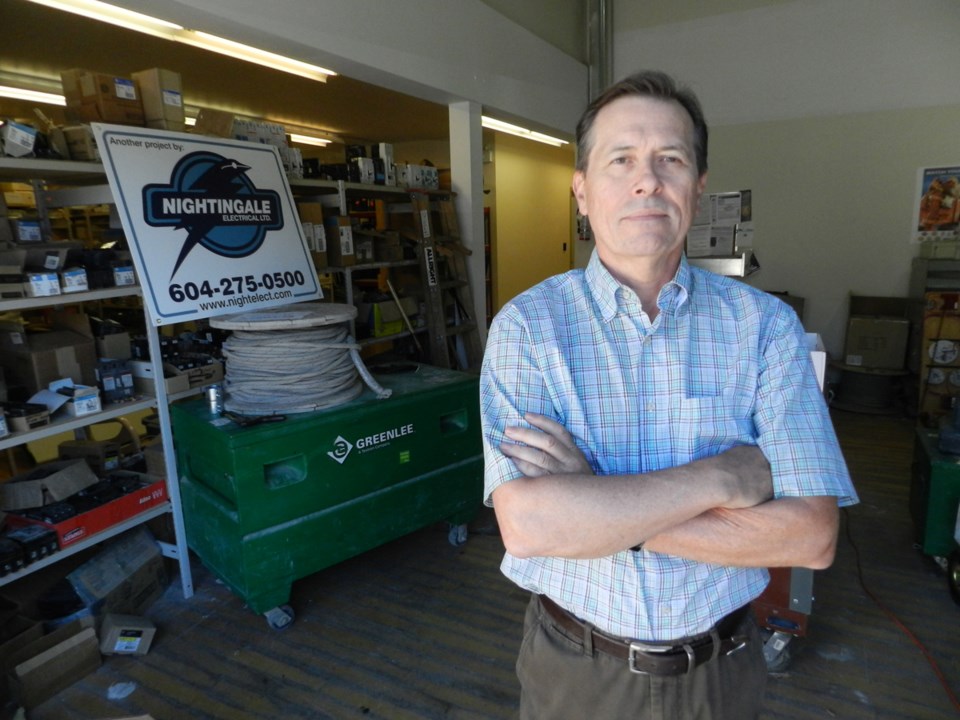The rising cost of housing in Metro Vancouver and short supply of units deemed affordable is putting the squeeze on local businesses trying to find employees who call Richmond home.
That’s the message derived from a Richmond Chamber of Commerce survey, which found that a large proportion of its members’ employees live outside the city.
And when asked if housing local prices — about $1.7 million for the average detached home — impacted their ability to attract workers, 62 per cent said it did.
For Doug Nightingale, CEO of Nightingale Electrical Ltd., which has about 260 employees, it’s a problem he fears will not get much better, if at all.
“It’s been a significant challenge over the years to get people to come to Richmond,” he said, adding that, in the last decade, as road traffic in and out of Lulu Island became increasingly congested, his firm has been keen to hire locals.
“But that’s now a real challenge with housing prices, especially for our administration staff who are not on the high end of the (pay) scale when they start.”
Even some of the firm’s senior staff have preferred to remain further out in the Fraser Valley, because they are not willing to pay for the high cost of housing in Richmond, Vancouver or Burnaby.
And that has caused a significant impact for some who have to endure the daily commute to the Ironwood area office.
“Some of them live in Langley and start at 7:30 a.m. So, they are up at 4:30 a.m. just so they can get here on time,” Nightingale said.
“And if they are trying to leave at 4:30 p.m., there’s no point, because the traffic is gridlocked. And that makes it tough on them.”
Currently, less than 10 per cent of the company’s workforce live in Richmond. In the past decade or so, that would have been about 15 to 20 per cent.
“These are tradespeople, electricians, apprentices, there’s no way these people can afford to live here,” Nightingale said.
“There’s nothing affordable. And I don’t think this 15 per cent (foreign buyer) tax will have a long-term effect.
“There is definitely no new people in the trades who are living and working in Richmond. And if they are, they are probably just out of high school, going to trades school and living at home with their parents. But as soon as they are ready to get out, there’s no way they are going to live in Richmond. It’s just hopeless.”
This type of survey of its members is rare, said Rob Akimow, chair of the Richmond Chamber.
“Our board of directors and staff were hearing about the hot housing market in almost every conversation. We knew we had to take the temperature of business,” he said.
“Historically, a survey to our members on this topic was uncommon. Our results show overwhelming that business leaders want to see concrete action on this issue.”
What form that will take, in addition to the new foreign ownership tax that was put into effect Aug. 2, the chamber is uncertain.
But for business owners such as Nightingale, future prospects do not look promising because the company, although it serves clients across the Lower Mainland, is not pulling up stakes and moving after being here close to 32 years.
In fact, it’s had the reverse effect, as some promising young apprentices the company invested time and money in have decided to part ways, citing travel times to and from Richmond, plus a lack of affordable housing options.
“The jobs that are out there for them are closer to (their) home,” Nightingale said. “And that’s become a larger and larger factor when we hire people.”
“It’s an everyday, in-your-face challenge that we run into and I don’t know if there is a solution,” he said. “Maybe it’s just a function of us growing and being an international city and that’s the way it is.”



